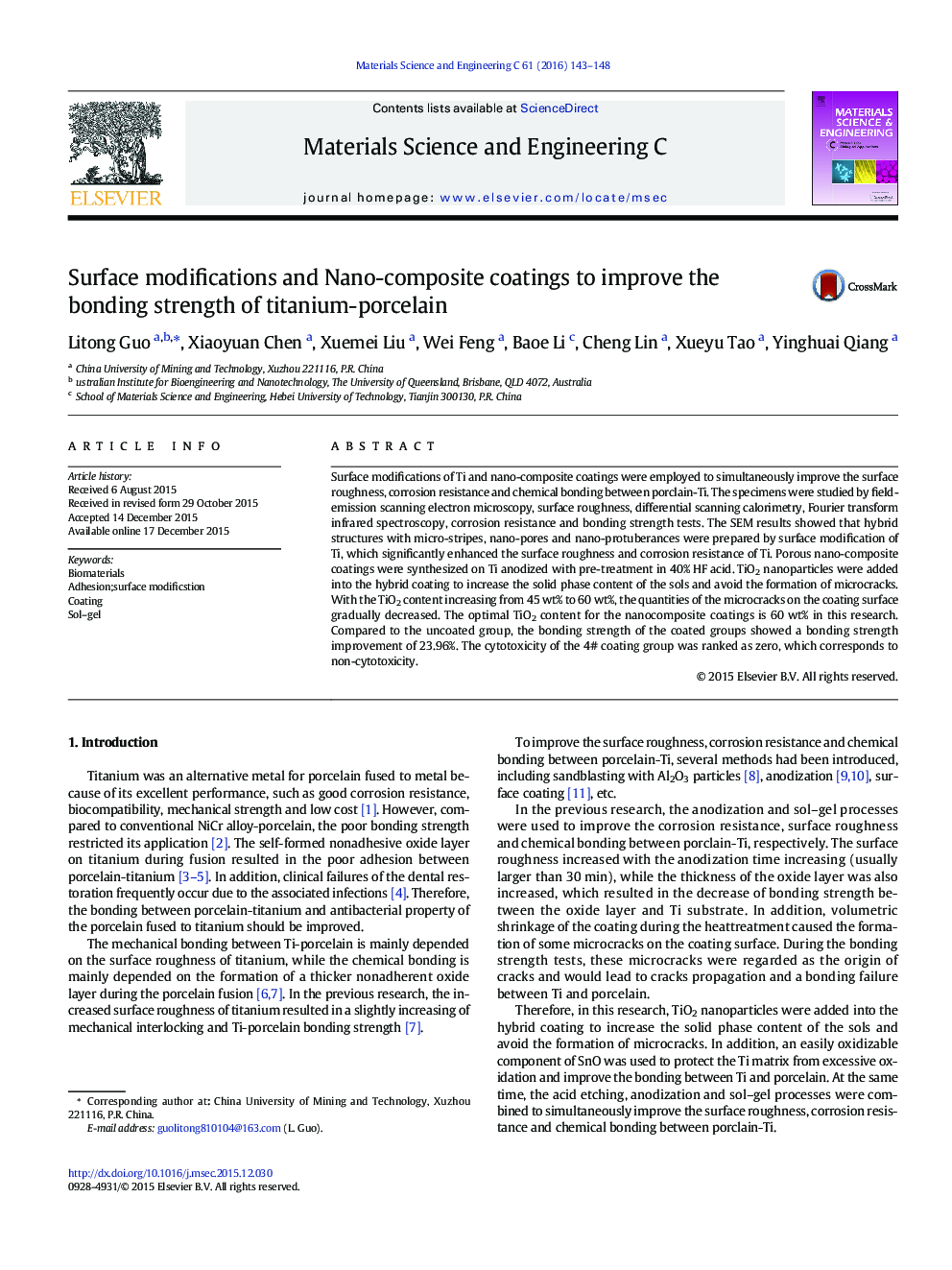| Article ID | Journal | Published Year | Pages | File Type |
|---|---|---|---|---|
| 7867799 | Materials Science and Engineering: C | 2016 | 6 Pages |
Abstract
Surface modifications of Ti and nano-composite coatings were employed to simultaneously improve the surface roughness, corrosion resistance and chemical bonding between porclain-Ti. The specimens were studied by field-emission scanning electron microscopy, surface roughness, differential scanning calorimetry, Fourier transform infrared spectroscopy, corrosion resistance and bonding strength tests. The SEM results showed that hybrid structures with micro-stripes, nano-pores and nano-protuberances were prepared by surface modification of Ti, which significantly enhanced the surface roughness and corrosion resistance of Ti. Porous nano-composite coatings were synthesized on Ti anodized with pre-treatment in 40% HF acid. TiO2 nanoparticles were added into the hybrid coating to increase the solid phase content of the sols and avoid the formation of microcracks. With the TiO2 content increasing from 45Â wt% to 60Â wt%, the quantities of the microcracks on the coating surface gradually decreased. The optimal TiO2 content for the nanocomposite coatings is 60Â wt% in this research. Compared to the uncoated group, the bonding strength of the coated groups showed a bonding strength improvement of 23.96%. The cytotoxicity of the 4# coating group was ranked as zero, which corresponds to non-cytotoxicity.
Keywords
Related Topics
Physical Sciences and Engineering
Materials Science
Biomaterials
Authors
Litong Guo, Xiaoyuan Chen, Xuemei Liu, Wei Feng, Baoe Li, Cheng Lin, Xueyu Tao, Yinghuai Qiang,
